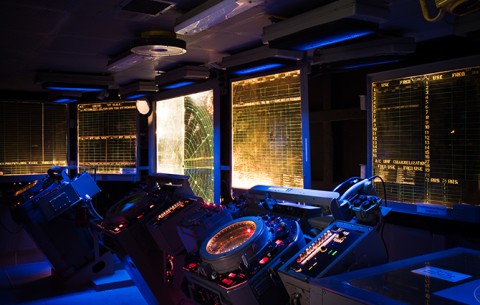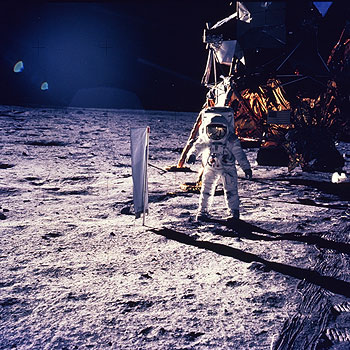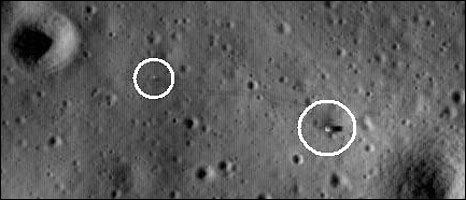Natalie Rothschild on the (non-political) opposition to the very notion of a manned space program:
Suspicion towards space exploration is not new, of course. Since the 1970s, it has variously been decried as a danger to peace and security, as a chauvinist enterprise, as a wasteful pursuit and as a threat to the environment. Yet pessimism and indifference to space discoveries are at an all-time high today. This became clear in the reaction — or lack of reaction, rather — to NASA’s announcement in December 2009 that water had been discovered on the moon. As Sean Collins pointed out on spiked at the time, this was ‘a giant leap towards fulfilling one of our collective fantasies, something only dreamed about in science fiction: humans living somewhere other than Earth’. It also made the moon a more likely base for manned missions to other parts of the solar system and NASA suggested the lunar water could hold a key to the history and evolution of the solar system. Yet, as Collins pointed out then, neither online pundits nor the mainstream media nor the authorities made a big deal out of the ground breaking discovery.
Seen in this context it was no surprise that Gingrich’s boasts were ridiculed. His plans for a space colony might have sounded like a good idea when he touted it to Florida’s struggling Space Coast. After all, when the Obama administration cancelled George W Bush’s plans to return American astronauts to the moon by 2020, it prompted protests from the communities that depend on NASA for their livelihood as well as from Apollo veterans. But it was no surprise that he was met with put-downs from most other quarters and that his ideas were entirely dismissed.
By and large, human achievements tend to be downplayed today. Exploring the unknown is seen as, at best, impractical and, at worst, reckless. When it comes to manned space exploration, the prevailing attitude is ‘been there, done that’. That’s why there’s been an unwillingness to separate Gingrich’s more wacky ideas — launching a new space race and establishing a permanent American outpost on the moon within eight years — from his sensible reminder that if we are to have any chance of making new discoveries and advances in the near or distant future, then we need to be willing at least to imagine that it’s possible and desirable to overcome the limits we face today.







